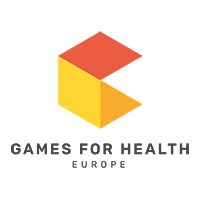Biography
Martina Ratto is a cognitive scientist dedicated at taking cognitive science research in the real world to support people and organisations to reach their full potential. With MyCognition, she is focused at investigating the potential of cognitive assessment and training programmes in different clinical and real-world settings, and educating people in understanding how cognition works. She is producing contributions for international scientific conferences in psychology, cognitive science, neuroscience, health economics, and digital health. Martina is also co-author of the award-winner paper “The Use of an IT-based Cognitive Assessment and Training as a part of a Smart City Program” presented at The Eleventh International Conference on Digital Society and eGovernments, and finalist at the Brainnovation Pitch Contest in the category Top Brainnovation to boost Workplace Productivity and Resilience. Martina has got experience in further education, corporate training and career mentorship and she is a collaborator of the Laboratory of Psychology and Cognitive Sciences of University of Genoa, Italy.
PRESENTATION 2018
Play, train, and improve: a cognitive fitness training videogame for corporate health, wellbeing and performance
Cognitive training games are showing to be able to produce positive clinical outcomes in patients with mental health conditions, but little evidence is available on their effects on healthy adults. Adopting cognitive training in adult workers may have a great positive impact on corporate health, wellbeing and performance. MyCognition has developed an integrated training platform to build cognitive fitness in the workplace. We have run a preliminary study to evaluate the effectiveness of our combined assessment and training solution AquaSnap in a mixed group of employees. The group had their cognitive function assessed with MyCQ, a clinically validated digital cognitive assessment measuring the key domains of attention, working memory, episodic memory, executive function and processing speed. They repeated a second MyCQ assessment after three months. During the three months the employees trained regularly using the personalised cognitive training AquaSnap, providing a training regimen automatically set based on individual MyCQ scores. Participants have also been coached during the entire period by an expert corporate wellbeing trainer. Over time, the overall cognition has become stronger and more balanced. Significant improvements have been reported across almost all the domains, with correlations with the time spent on the training game. These preliminary results show how a cognitive training videogame can be used as a part of a corporate health programme to improve wellbeing and performance.
PRESENTATION 2017
Making communities cognitively fit with a self-administered assessment and training programme.
Poor cognitive health is common in all ages and it may occur to people without a specific neuropsychiatric diagnosis, due to chronic stress, unhealthy life habits, or early-stage diseases.
MyCognition has developed a programme designed to understand, measure, monitor and improve cognitive fitness in various communities, including schools, universities, social and cultural groups, businesses, social services and health care institutions, and a large number of studies have already been lead in these settings.
The MyCognition programme includes an online, self-administered, cognitive assessment measuring five key cognitive domains, i.e. attention, processing speed, working memory, episodic memory, and executive function. The assessment’s scores are automatically linked to a personalised training program embedded into an engaging videogame. Users are also provided with reports explaining details about their cognitive fitness, with suggestions to improve it.
The science-based approach which guides the programme presented, together with its universality, easy-availability, user-friendliness, and cost- and time-effectiveness, seem also to make it eligible to be a leading innovative tool for communities aiming to focus their efforts on their citizenry’s potential and wellbeing.
This type of cognitive intervention is expected to transform health services by giving institutions and companies the tools to reduce the costs related to poor mental health, while improving chances of education, employment and good quality of life across all segments of population.

